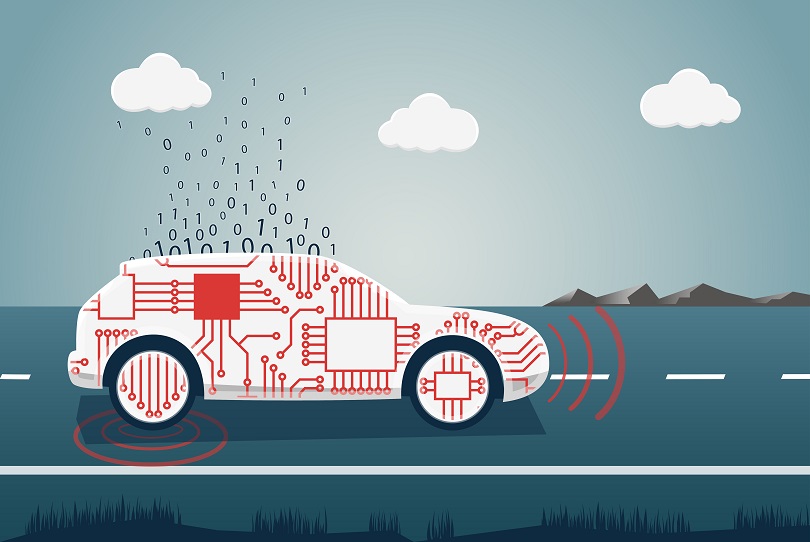Pune, India’s foremost automobile manufacturing hub, should lead the way in just transition of the automobile sector in Maharashtra

Pune, 2nd April 2024: The International Forum for Environment, Sustainability and Technology (iFOREST), a prominent environmental think tank, released the first comprehensive study of the impacts of the EV transition on Maharashtra’s automobile businesses, workers, and the environment. Based on the prospective impacts, the report outlines a comprehensive roadmap for just transition of the automobile sector, which can deliver positive environmental and socio-economic outcomes.
Alongside, the Maharashtra report, the think tank also released a compendium of five separate studies of various aspects of the transition from internal combustion engine vehicles to EVs. The studies cover a spectrum of issues including the impacts on the auto component manufacturers, the impacts on auto clusters which are the manufacturing and employment hubs, and finally the impacts on jobs.
The iFOREST reports were released at a public event in Pune which brought together various stakeholders, including eminent members of the civil society, Government officials, industry players, auto cluster representatives, skilling agencies, and thank tanks.
While inaugurating the event, Dr. Raghunath Mashelkar, an eminent scientist and a Fellow of the Royal Society (honoured with Padma Vibhushan), said “Technology development, policy, and planning should happen together to channelize resources in the right manner to support the transition”.
Dr. Ajit Ranade, Vice Chancellor of Gokhale Institute of Politics and Economics said that “EV transition is a trend, and thus we need policies and plans to make the transition right. It is essential to protect workers and not just jobs.”
Dr. Amitav Mallik said, Founding Member of Pune International Centre (honoured with Padma Shri) said “Both Energy and automobile transition is inevitable. But the shift must be from owing of vehicle to sharing of vehicle.”
Prashant Girbane, Director General at Mahratta Chamber of Commerce, Industries & Agriculture (MCCIA) said “The Chamber of Commerce can support in skilling, technology, and strengthening clusters-particularly SMEs for just transition of the automobile sector”.
Abhijit Ghorpade, Director, State Action Climate Cell, Department of Environment and Climate Change, GoM said, “We will need a comprehensive state just transition policy to support a well-coordinated transition. Developing plans for the regional clusters where industries are concentrated will help in comprehensive intervention.”
Speaking on the occasion Dr. Chandra Bhushan, CEO of iFOREST, said that “just transition of the automobile sector is a fundamental necessity as it provides a large number jobs across the value chain. The advancement of technology and the development of human resources must progress together to ensure the availability of skilled human resources to fully leverage technological capabilities. Simultaneously, technology needs to be designed and implemented in ways that reduce job displacement and improve job prospects”.
Key Findings and Recommendations
- Modelling projections by iFOREST show that under various policy scenarios, India is poised for a massive EV penetration in total vehicle manufacturing in next 10-12 years.
- Maharashtra, India’s automobile hub, remains a front-runner in the EV transition given supportive State EV Policy, and central policies such as FAME. Maharashtra accounts for 12.6% of total EV sales across India with the highest sales recorded for 2Ws and 4Ws in the country.
- The transition from ICE to EV will make about 90-100% of parts of the powertrain of an ICE vehicle obsolete depending on the vehicle type. Thus, there will be a significant impact on the business of auto component manufacturers (ACMs) as they will have to supply fewer parts.
- A study of the Pune auto cluster shows that 25% of ACMs will be highly or moderately impacted by the transition due to the changing demand of parts in EV ecosystem.
- MSMEs, constituting 97% of ACMs, remain particularly vulnerable, given their limited financial resources and capacity for technology adoption.
- The impact on MSMEs will also impact a large number of contractual and informal workers associated with these enterprises. Overall, contractual and informal workers constitute nearly 60% of the workers in ACMs. The informality is higher in micro and small enterprises.
- There will be a significant impact on traditional job roles in the auto sector due to EV transition, involving various workers. About 31% of the job roles will be affected- 14% will become obsolete and 17% will require reskilling. Maximum job roles will be affected in the manufacturing segment.
- However, the overall impact on jobs will be positive. Firstly, the EV ecosystem while will replace traditional jobs, but will overall create 5% new job roles. Secondly, while the number of jobs supported by EVs is slightly lower than ICE vehicles, there will be a net increase in jobs in the automobile sector due to the penetration of EVs.
- Overall, 6 districts in Maharashtra remain vulnerable to the EV transition considering the concentration of manufacturing units and high employment dependence. These 6 districts- Pune, Nashik, Aurangabad, Mumbai (Suburban), Thane, and Kolhapur— account for 65% of automobile units in the state and 83% of the formal workforce.
Considering the prospective impacts, the iFOREST report proposes a comprehensive ‘Just Transition Policy Framework for the Automobile Sector for Maharashtra’ highlighting 8 key inter-related policy aspects. Some of the key policies that the Framework highlights, include:
-
- Policies and investments to make Maharashtra an innovation hub in clean mobility.
- Fiscal policies to support OEMs and ACMs for adopting green manufacturing practices.
- Policies to strengthen skilling and reskilling measures aligned to the EV ecosystem.
- Developing a dedicated “Skill Development Fund” particularly to support informal workers, and low-skilled workers.
- Mandating the development of a Workforce Transition Plan by OEMs for strengthening enterprise-level action.
- Instituting a Right to Repair and Servicing Policy to reduce the vulnerability of workers engaged in servicing and repairing.
- To reduce the vulnerability of auto clusters and support a well-coordinated transition, a Cluster Plan will be essential for each auto cluster.
- Overall cooperative engagement will be required of the state government, district administration and agencies, industry bodies, skilling agencies, and research institutions.
“The objective of the transition from ICE to EV should be aimed at achieving a holistic transformation. pune has the best institutes to innovate on technologies, and build knowledge. These should be collectively leveraged to boost green growth in the auto sector, increase employability and job opportunities in the new EV ecosystem, and ensure positive environmental outcomes, said Dr Raghunath Mashelkar.








